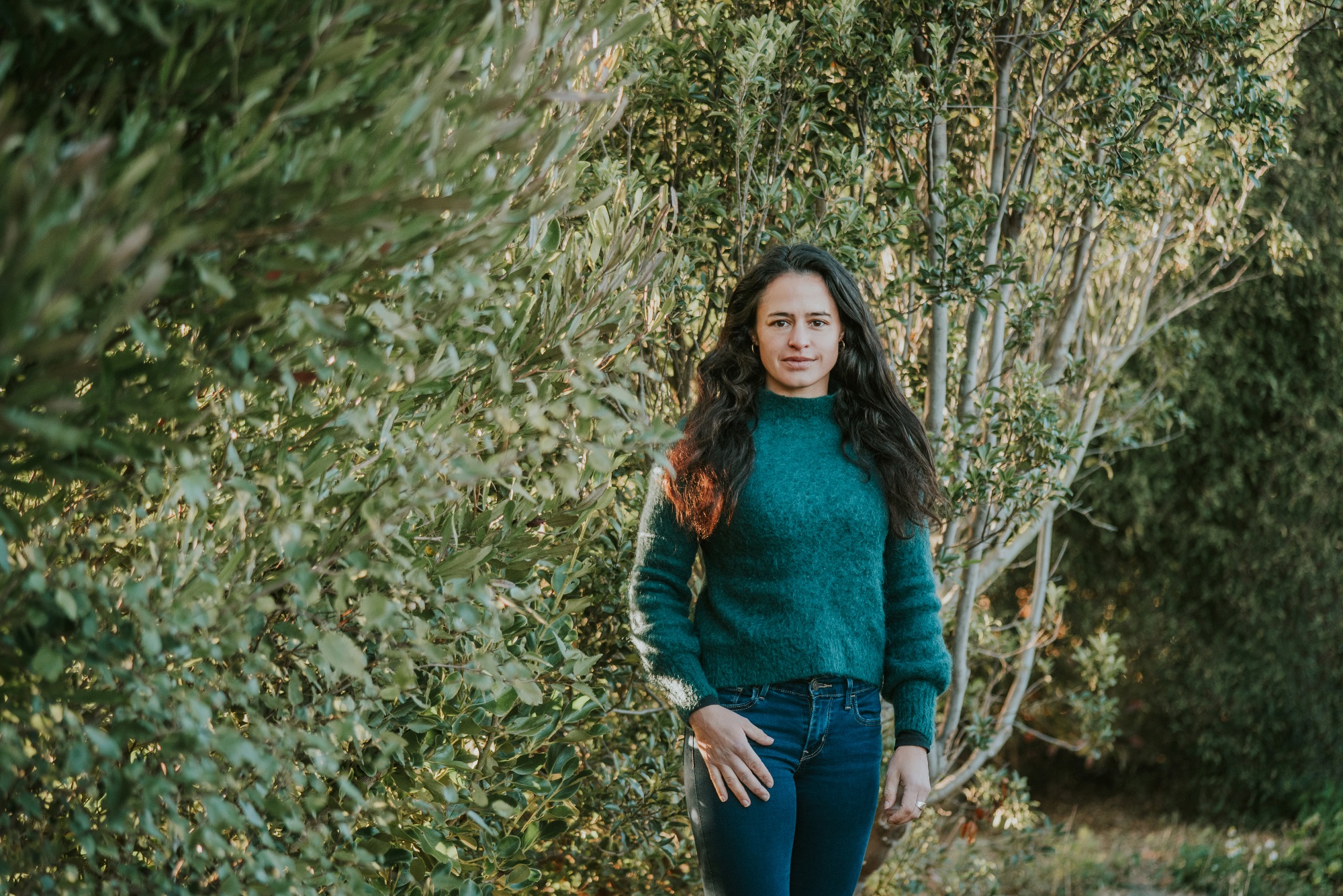Cultivating environmental change

Michelle Barry. Photo: Aimée Preston
Amidst global environmental challenges, Marlborough’s Michelle Barry emerges as a beacon of leadership, weaving together expertise in sustainable agriculture and climate resilience to drive transformative community initiatives.
Words: Adrienne Matthews
Women are increasingly stepping forward with determination and energy in leadership roles to confront and find solutions for the environmental challenges the world is facing. Marlborough has its own exceptionally talented group contributing their research skills, knowledge, and experience to individual and joint projects aimed at improving the region’s environment.
Irish-born Michelle Barry wears a wide array of environmental hats, allowing her to inspire positive change with agility. Michelle speaks of “growing up in a bit of a madhouse.” Her mother had a background in farming, horticulture, and healthcare, while her father diverted from a career in the restaurant business to the renewable energy sector, focusing on windfarm development. “We had the importance of environmental stewardship drilled into us from a very young age,” she says. “Our family also had a great passion for the outdoors, which increased our understanding of the importance of caring for the natural world.”
“I had worked for some years in agricultural advisory services and arrived in New Zealand in 2015 to a very different farming system than in Ireland,” she says. “I stumbled into the wine industry and have worked in various roles as a viticulture technician, vineyard manager, and even in sales. This gave me an excellent overview of how the wine industry works, and this experience has helped me set up research and extension programs to support wine growers in improving their soil health and achieving better environmental outcomes on their vineyards.”
Michelle says she wakes up each morning to support farmers and growers in achieving better environmental outcomes on the farm, “Most farmers want to leave their land in better condition than they found it, but the challenge is to integrate practices and actions that improve environmental and production resilience while maintaining or increasing profitability, especially as the climate changes.”
Despite juggling roles as a researcher on numerous projects and serving as deputy chair of Quorum Sense, a charitable trust committed to supporting farmers in transitioning to biological and regenerative practices, Michelle is also a co-founder of Variegate, an organization that provides integrated solutions to support agricultural diversification at scale. She has even managed to fit in research for her PhD in agricultural economics, exploring the potential for land use diversification as a climate change adaptation strategy.
Biological and geographical diversification has been proposed as an adaptation to climate change and many other challenges encountered in the agri-food sector, but diversification is difficult and not without risk. Michelle’s PhD research focuses on reducing risk through diversification and making decisions today that account for uncertainty and a range of possible futures. “It is my goal to transition the region into one of enormous diversity that benefits nature, growers, and everyone who lives here,” she says, “diversification could include the cultivation of new crops
and supporting industries, accessing biodiversity markets or adding value to current waste streams.”
“Partnership is central to our business model, along with an integrated approach. The real magic happens when these two things are combined. When a region’s
environmental, economic, and social goals are placed at the centre of planning and decision-making, cohesive interrelated solutions can be developed. This approach creates synergies across the community and limits maladaptation.”
Last year Michelle completed the Agri-Women’s Development Trust Escalator program, a leadership accelerator program for women in the primary sector which gave her the confidence to take on more leadership roles.
She says she is excited to be part of ‘Climate Action Marlborough,’ which brings together people in the community who care for the region in different ways. “It is a classic example of how diverse leadership can inspire change.”
“We can’t wait for central or local government to sort these things out for us. Everyone needs to be their own leader in environmental management. If we imagine the future we would like to have, then we have to work together as a community now and in partnerships with other organisations, iwi, farming, and industry to make changes that will result in healthy, long-term outcomes.”
Michelle’s biggest passion is for creating diverse agricultural landscapes that provide for people and nature. “There is huge potential in Marlborough to create a thriving, diverse bioeconomy that leverages the existing human and natural capital we have in the region,” says Michelle. “Diversifying agricultural landscapes not only reduces risk and increases resilience but also enhances the primary sector's social license to operate.
The wider community in Marlborough cares a lot about local food security and creating space for native biodiversity in our current farming systems.”
To read more about research exploring the Marlborough community's vision for land use, visit the Our Land and Water National Science Challenge ourlandandwater.nz/project/sharedvision-for-land-use-in-marlborough/
Hear more about Michelle Barry and other environmental guardians via Catherine van der Meulen’s ‘Entrepreneurial Women with Purpose Podcast.’ entrepreneurialwomenwithpurpose.com
